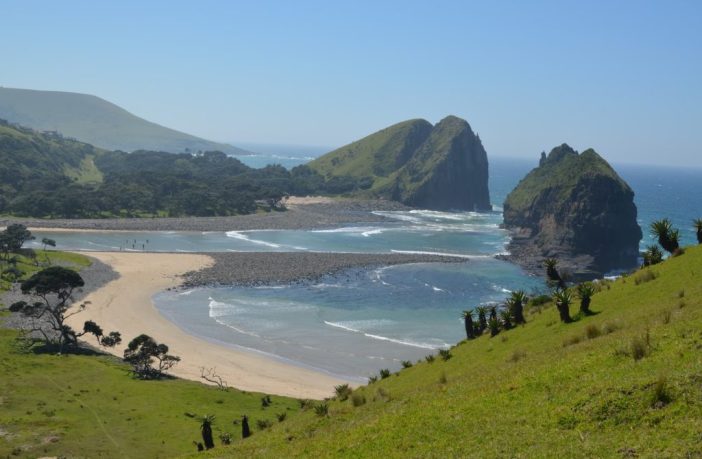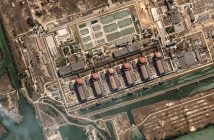- Yesterday evening four environmental and human rights organisations supported by environmental law firm, Cullinan & Associates – filed an urgent interim-interim interdict against Shell in the Eastern Cape Division of the Grahamstown High Court to prevent the fossil fuel company from commencing seismic testing along the ecologically diverse and sensitive marine environment of South Africa’s Wild Coast.
- Royal Dutch Shell (Shell), an Anglo-Dutch multinational oil and gas company, was due to start a seismic survey in search of oil or gas deposits off the South African coast on December 1, 2021.
- The world’s largest seismic ship operated by Shell Exploration and Production SA’s partner, Shearwater GeoServices, the Seismic Warrior, is set to drag up to 48 air guns methodically through 6 011km² of ocean surface from Morgan Bay to Port St Johns over a five month period.
- The seismic survey announcement follows a transaction in August where Impact Oil & Gas Limited a privately-owned, Africa-focused, exploration company, sold 50% of its working interests and operatorship in the Transkei & Algoa exploration right, offshore South Africa (Exploration Right reference 12/3/252), to Shell. Read more
Cullinan & Associates delivered a certificate of urgency to the Registrar yesterday at approximately 12h45, 29 November. Acting Judge Govindjee’s Directive was received at around 14h20, which saw the matter as urgent, and determined the following in relation to interim-interim interdict:
- Applicants to issue and file papers yesterday, 29 November
- Respondents who intend to oppose are to deliver notice of opposition and answering affidavit by 16h00 today, 30 November
- Applicants to deliver replying affidavit, if any, by 13h00 tomorrow, 1 December
- Applicants and (opposing) Respondents to file heads by 13h00 tomorrow, 1 December.
The papers were filed at the High Court of South Africa, Eastern Cape Division, Grahamstown, and served electronically on Shell’s attorneys yesterday on 29 November 2021. The matter will be heard in Grahamstown and argued virtually at 14h00 tomorrow, 1 December 2021.
*The applicants are: Border Deep Sea Angling Association, Kei Mouth Ski Boat Club, Natural Justice and Greenpeace Africa.
Summary of grounds
Our view is that the commencement of the seismic exploration activities are prima facie unlawful until Shell has applied for, and obtained, the necessary Environmental Authorisation in terms of the National Environmental Management Act (NEMA).
We also believe that the decision-making process amounts to unjust administrative action since interested and affected parties were not informed of the granting of the exploration right or given an opportunity to appeal it. The public were also not notified of the two applications to renew the exploration right.
Video: Environmental Impacts of Marine Seismic Surveys
Potential impacts
The vessel would, for five months, fire air guns every 10 seconds through 6,011km² of ocean surface, firing extremely loud shock wave emissions that penetrate through 3km of water and 40km into the Earth’s crust below the seabed. Marine life on the sensitive Wild Coast would be disturbed and destroyed with many sea creatures like whales, dolphins, seals, penguins, sharks and even crabs and tiny shellfish being negatively impacted by the blasts in the coming months. The Wild Coast’s pristine beaches and biodiversity attract millions of tourists every year. Seismic surveys have been linked to decreased sightings of marine life and decreased catch rates for commercial fishing.
The planned seismic survey, and planned activity thereafter will have direct and dire impacts on the social, economic and cultural rights, and ultimately the right to self determination of the communities of eXolobeni, Nqamakwe and Port Saint Johns, which depend heavily on eco-tourism and fishing for livelihoods and subsistence, and who safeguard this land as sacred and deeply connected to their identity and heritage. The needs and rights of these communities, the stewards of our seas, land and biodiversity, far outweigh the selfish interests of companies like Shell.
The mitigation measures proposed by Shell are wholly inadequate for South Africa’s most diverse coastline and will cause irreparable harm to whales, dolphins, crayfish, endemic reef fish, fish larvae, turtles, birdlife and zooplankton. Many listed as Threatened and Protected Species are located directly within the survey area. Shell’s own documents state that the surveys should not take place in December due to migratory whales (now in calf) traversing the area.
The applicants intend putting expert evidence before the court to expose how irrational and socially unjust it is for Shell to continue looking for more oil and gas reserves when the reserves already discovered cannot be used without causing catastrophic climate change, especially in light of the Dutch court ruling ordering Shell to reduce its greenhouse gas emissions by 47% within this decade.
Comments from applicants:
“This flies in the face of the government’s responsibility to protect and safeguard human rights and the environment. It also undermines our government’s obligation under the Paris Climate Agreement to mitigate the climate crisis for people now, and for future generations, and contradicts the commitments made at the recent COP26 in Glasgow to lower emissions and advance a just transition.” – Pooven Moodley, Natural Justice, Executive Director.
“It’s ludicrous that this is even being considered as an option by our government to look for gas and oil reserves in an evolving ‘greener’ world in any of our coastal waters, let alone the extremely biodiverse and sensitive Wild Coast. We will not take this lying down and will do all in our power to put a stop to it.” – John Luef, Border Deep Sea Angling Association.
“Shell’s activities threaten to destroy the Wild Coast and the lives of the people living there. We know that Shell is a climate criminal, destroying people’s lives and the planet for profit. South Africa’s problems do not require violent extraction nor destruction of the environment and community livelihoods. The best and most immediate solution is a just transition to renewable energy, ensuring safe and decent/work jobs, and energy access for all.” – Happy Khambule, Senior Climate and Energy Campaign Manager for Greenpeace Africa.
Author: Bryan Groenendaal












1 Comment
Hi. I am really concerned by what is going to happen on the wild coast and I have signed a lot of petitions about this matter. How can we help further? Thank you for your devotion and commitment